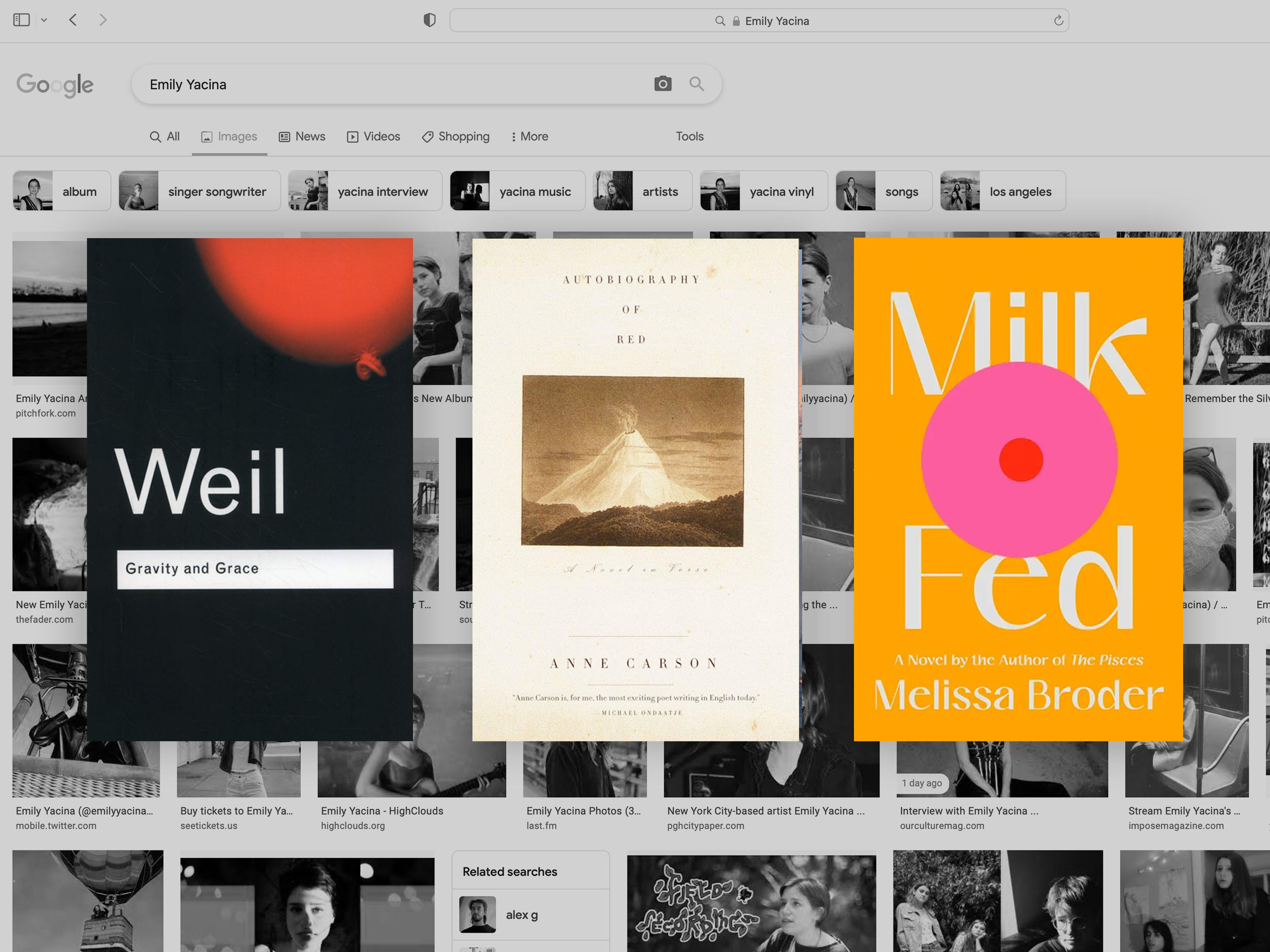Ahead of the release of ‘All The Things,’ the musician revisits her most formative reads, from explorations of neuroses to reimagined mythologies
It’s a long-established fact that being a teenager, well, sucks—and there is an ever-growing wave of content to prove it (see: the weighted impact of Euphoria on an entire generation and Marvel’s unending exploration of high-schoolers turned superheroes). But the tragedies of one’s twenties are less often used as grounds for a juicy novella or tumultuous television series. Perhaps because the trivial dramas of teenhood are easier to indulge in, while the abundance of “grown-up” problems that increasingly bombard a person as they transition into adulthood feel disappointingly unglamourous.
Emily Yacina’s discography functions as a self-portrait, following her through her teens and twenties and addressinging all the baggage that comes in both eras of life. More than ten years since her first release, All The Things applies that decade of perspective to touch on some of the same themes she explored when she first started writing at 14—whirlwind romances and explorations of the self. Yacina carries the intensity of emotion and poignant vulnerability of her earliest writings into her last release, only with glossier production and heavier subject matter. For Document, Yacina shares a list of books that were formative to her own development, an insight into the types of thinking that molded her from teen to adult.
Gravity and Grace by Simone Weil
“A book to live by, it’s like spiritual food. Originally published in 1947, Weil’s ideas transcend time and space—and feel more prevalent now than ever. Weil discusses the spiritual significance of attention: ‘Attention, taken to its highest degree, is the same thing as prayer. It presupposes faith and love. Absolutely unmixed attention is prayer.’ These days, when our attention is pulled in a thousand different directions at once, reading Weil’s words is like taking a long deep breath. Gravity and Grace reads like a personal journal, but the revelations within are applicable to anyone who picks up the text.”
Autobiography of Red by Anne Carson
“Autobiography of Red is a gorgeous coming of age novel that flows like a poem. The book is based on a Greek myth about a red monster named Geryon, who lives on a red island with his red cattle. In the myth, Geryon and his cattle are killed pretty quickly by Herakles—no hesitation or drama really. In Carson’s take, however, she writes from Geryon’s perspective, and she makes him a gay teenager who falls in love with Herakles. This book is like medicine for anyone who can relate to the particular weight of a first love. It’s so healing, because we witness Geryon grow up and discover that he himself is already whole (but not before all of the yearning that got him there).”
“Not many writers can describe neurosis so accurately while also being hilarious! Broder builds a world inside the mind of Rachel, a 24 year-old bisexual whose therapist prompts her to detox from her mom. The journey that ensues is about self-discovery and how impossible it can feel to lay down boundaries (especially if you haven’t had any practice.) A phrase from the book that I think about all the time is ‘you don’t go to the hardware store for milk,’ meaning—don’t look for sweetness from someone or something that’s not capable of giving it to you.”
The Color Master Stories by Aimee Bender
“One of my all time favorite collections of short stories. Bender creates mystical universes in her stories that are funny and also beautiful. The title story reads like a fable—it’s about someone in a kingdom who mixes colors for the rest of the village. The color master is tasked with making a dress for the princess that’s the color of the moon, which turns out to be a nearly impossible task. The story is all about intention and the creative process—which I think any artist can relate to.”







